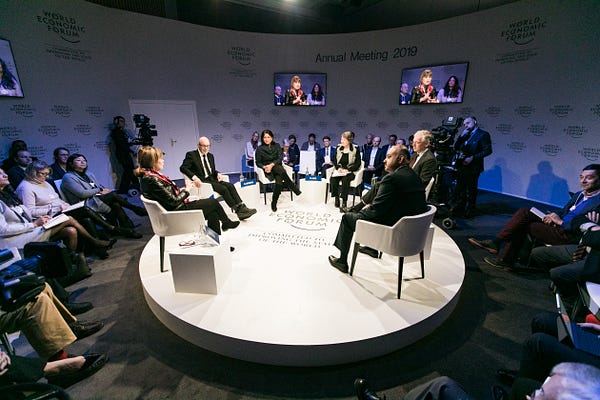📕 Node [[the politics of epistemic fragmentation]]
📄 The-Politics-of-Epistemic-Fragmentation.md by @enki
The Politics of Epistemic Fragmentation
When widespread internet access broke down our sense of a collective reality, what it was toppling was not the legacy of the Enlightenment…
The Politics of Epistemic Fragmentation
How the illusion of consensus was always a power play, and what to do now
that it has shattered

Over the past few years, it has seemed as though the only thing ‘real news’ outlets can agree on is the danger of ‘fake news’.
Foreign powers or domestic traitors are accused of engineering political divisions, creating ‘polarization’, and seeding arbitrary disinformation for the sole purpose of making it impossible for people from different subcultures to communicate. This is blamed on the internet (and, more specifically, social media) — and there is some truth to this accusation. However, as is often the case with new communication technologies, [social media has not accelerated this tendency towards disinformation so much as it has made it more visible and legible](https://modernmythology.net/contra-ovadya-on-post- truth-83bb15acce7c?source=friends_link&sk=c0aed65c0f5befe2a1e241efd8d695e3).
When widespread internet access broke down our sense of a collective reality, what it was toppling was not the legacy of the Enlightenment, but instead an approximately 100-year bubble in media centralization. Current norms around meaning-making cannot survive the slow collision with widespread private ownership of duplication & broadcast technologies.
These norms are built around an assumption that consensus is normal and desirable among people who communicate with each other — in other words, that whenever people calmly and rationally communicate, they will come to an understanding about base reality. This ignores the role of power relations in communication: in modern, liberal contexts, the party that can perform calm diplomatic rationality the best will win, and the best way to remain calm and diplomatic is to know that if you fail in your attempts at diplomacy, a technically advanced army will continue that diplomacy through more direct means. It also ignores the potential value of ideas (including myths) to people who do not fully understand their mechanism of action — what the rationalist community calls Chesterton’s Fence.
Just as we benefit from medical innovations like SSRIs and anesthesia without knowing how or why they work, many cultures benefit from beliefs that aren’t grounded in observation, deduction, or strong evidence that they correspond to base reality — but, rather, by the fact that everybody who didn’t hold those beliefs eventually died for reasons that remain obscure.
In situations of extreme cosmopolitanism, where people from different cultures and environments communicate on equal terms, there will be disagreements that cannot be dismissed as merely aesthetic preferences or historical relics — but that nevertheless cannot be worked out through debate or discussion, simply because discovering their material bases is a project of immense complexity.
Epistemic fragmentation — the tendency for different people to have different sources of knowledge and different, often conflicting, understandings — is irreducible , and epistemic centralization — the centralized control of shared sources of information — cannot provide a universally-applicable shared understanding of the world.
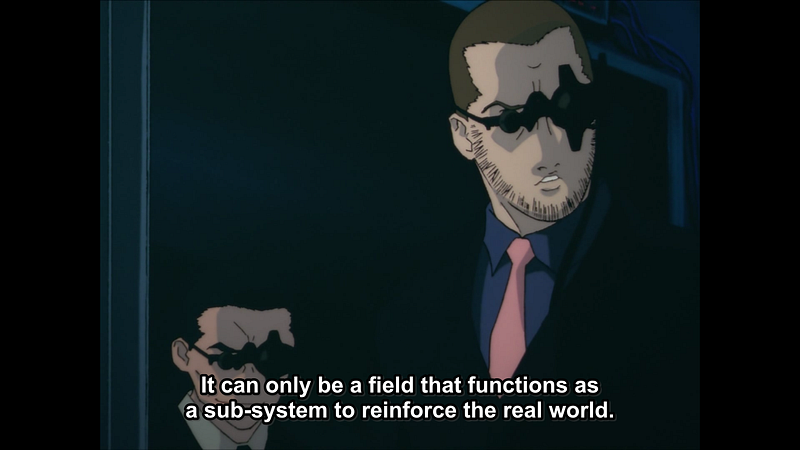
We should be wary of attempts to solve this problem through ‘trust in institutions’ — in other words, through a return to the epistemic centralization that characterized the twentieth century.
This epistemic centralization was produced by tight control over broadcast communication — organizations were ‘trusted’ because they had the power (through reserves of capital, ownership of expensive equipment, and/or explicit government support) to reach many people with the same messages, but they were not ‘trustworthy’ in the sense that they did not (and could not) accurately report on reality. While plenty of these organizations worked in good faith to be responsible and accurate, no handful of organizations has the manpower to report upon and fact check everything important.
Photo by Evangeline Shaw on Unsplash
Organizational or institutional meaning-making is a slightly scaled-up form of individual meaning-making.
An institution provides a structure for organizing individual work, and this structure organizes flows of resources and information.
These flows control what information can be expressed externally by enforcing broadcast norms, house style, determining what sections are allocated to what topics and determining what counts as newsworthy based on whether or not it fits into any of these topics, and so on; they control what information can be expressed internally, based on norms about professional communication, expectations about shared spaces (like DC reporters socializing after-hours in particular bars, or tech and culture beat journalists socializing on twitter where strict character counts force a terse style), and social hierarchy and stigma around covering particular topics; they control what material can even be effectively researched through the control of resources like travel expenses, deadline length, and materials for stunt-reporting.
All of these actions are essentially filters : they prevent journalists from researching and reporting on a wide variety of things they would like to cover, while producing incentives to cover a handful of specific things. Because of this, no institution can produce better-quality meaning (i.e., meaning formed by serious consideration of a wider variety of sources) than the individuals working for it could produce under a looser confederation, assuming the resources necessary for access remained available.
Consensus reality is merely a side effect of ignoring or erasing the pieces that cannot be made legible and cannot be made to fit any narrative or model — and this erasure is political, in the sense that it shapes what can be imagined and what can be spoken about.
We cannot effectively consider topics we are not allowed to discuss; we cannot make good personal decisions about topics we cannot effectively consider; we cannot make good collective decisions on topics about which we cannot make good personal decisions; therefore,[ the soft-censorship necessitated by the limited resources of the centralized meaning-making that engineers the illusion of consensus reality prevents politics from effectively addressing problems that affect only a few but that require mass action and solidarity to solve](https://medium.com/the-weird-politics-review/my-revolution-was-never-a- possibility-notes-on-adhd-anarchism-and-accelerationism-ed9d5113f9e0).
The private supplementation of centralized shared knowledge is insufficient.
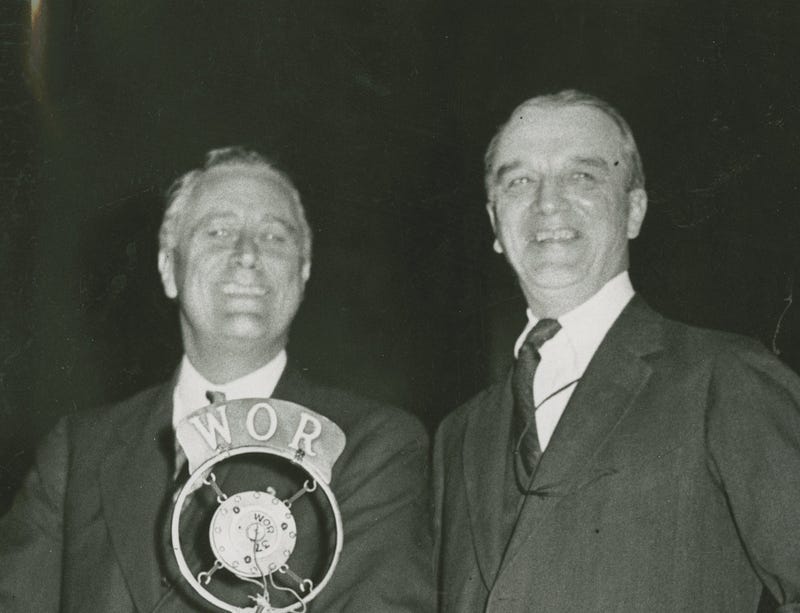
The twentieth century model of broadcast media is an extension of earlier models of (print-based) publishing: in the beginning, printing presses and radio stations are expensive and a handful of early experimenters create content for a handful of early adopters; as equipment costs drop, more people get into the market, leading to a push to regulate and re-centralize helmed on one side by the biggest players in the market and on the other by folks who are concerned about signal-to-noise ratio.
This leads to self-enforced standards — rules for journalism, for instance — along with state-enforced measures to create a ‘legitimate’ class and separate it from ‘illegitimate’ amateurs — copyright, spectrum subdivisions, broadcast content rules.
Broadcast mechanisms have typically remained expensive, regardless of how technology has progressed: prior to widespread internet access, the cheapest broadcast medium (in terms of the ability of an individual of modest means to reach many people) was the production of xerox pamphlets — tens of cents per copy, plus postage.
**With the internet, copying has a much lower cost & can be performed without the direct, intentional involvement of recipients **—what costs do exist can be automatically distributed more evenly, rather than being concentrated in the hands of some central node.
([Because of a historical mistake, the web concentrates costs centrally, but peer to peer communications technologies do not](https://medium.com/@enkiv2/there-was-never-an-open- web-69194f9b1cf1?source=friends_link&sk=7aed9c67a373e1334f671be2b0b78afc).)
This breaks the economic justification for a tendency toward re- centralization in the distribution of information — a justification that had previously made the institutionalization of consensus-making unavoidable.
Prior to widespread literacy and widespread access to oral mass broadcast media, consensus-making and meaning-making was a social process rather than a parasocial one.
Time-binding technologies — mechanisms to permanently record and retrieve information, so that information that originated long ago or far away could be transmitted without distortion — were limited to print.

Writing, in the absence of mass-production technologies, had more of an oral aspect to it: while Babylonian kings would manufacture negative molds for exactly reprinting laws, manuscripts were largely transcribed by students in lecture halls who included the lecturer’s asides in their transcriptions alongside their own notes, and these modified manuscripts would be the basis for later lectures or would be copied by hand. In other words, before print, it was rare for even writing to be ‘broadcast’ in the sense of a large number of people receiving exactly the same information , and before radio, this kind of standardization was not available to the illiterate at all.
Photo by Hannes Wolf on Unsplash
In the print age, the intelligentsia got their ideas from the canon of great literature and so were capable of groupthink at scale , but their illiterate or semi-literate peers were exploring epistemic space together in a more organic fashion, without powerful time-binding technology tethering them to any baseline.
The sharedness of their realities mirrored their social connectedness — almost always bidirectional, if not even or equitable — and their social graphs mirrored geography (because transport technologies, though they could warp transit-space, did not flatten it — it may be easier to go 100 miles by train than 10 miles by horse, but it has never become equally easy to physically transport oneself to anywhere on earth).
What the internet did was to make visible the already-existing alien realities of the outgroup and allow faster mutation through the cross- pollination of fringe groups.
Telephony could have done to these oral cultures some of what social media has done to our literate culture, had it become common and affordable a decade earlier and had party lines remained normal, but charging by the minute (with a multiplier for long-distance calls) prevented the telephone network from being the basis for the kind of multi-continent perpetual hangouts that make the internet so cosmopolitan — with the exception of phone phreaks, who used exploits to create exactly this kind of community behind Bell’s back.
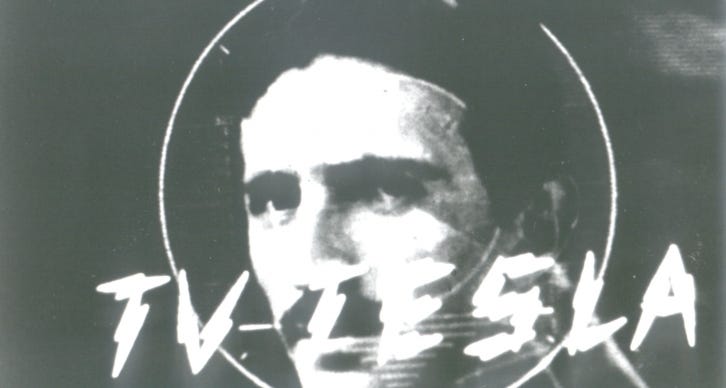
A frame from Spectres of the Spectrum , a frenetic documentary about media history
We might say that this is ‘the problem of postmodernity’.
I’m not sure such a label is useful, in part because it has accumulated so much baggage, but mostly because postmodernity gets treated as a very individual problem experienced as a group: we all live in a postmodern age, and so we all experience a loss of shared meaning in our own private ways.
I would not expect folks born after 1980 to have the kind of ‘crisis of meaning’ that earlier generations had: Millennials and Gen X-ers have largely grown up in an environment where to believe in a fully-knowable truth is considered naive, much as baby boomers largely grew up with a gut understanding that nihilism was the only truly coherent frame for understanding the position of the self in the world.
Instead, we are left with the more concrete problem of a fragmented information ecosystem: now that we know that reasonable people disagree with us in fundamental ways, how do we relate to them and negotiate with them?
This is a practical problem, and it’s one that wartime propaganda ministries, espionage outfits, and colonial rulers have historically dealt with.
Photo by Museums Victoria on Unsplash
Paul Linebarger’s 1948 US Army handbook, Psychological Warfare , recommends (based on his study of the history of propaganda and his experience running US propaganda campaigns in Japan during the second world war) cultivating a deep understanding of actually-existing beliefs and concerns both among your allies and among your enemies, in order to construct messages that modify behavior in the desired way. In particular, he praises leaflets aimed at enemies that encourage desertion by widening already-existing ethnic and class divisions, sparking and amplifying justified fears (that command considers infantry disposable, or that military personnel from a not-yet-fully-trusted ally are engaged in affairs with soldiers’ families back home), and creating and delivering on incentives (such as claiming that POWs are treated well and then actually treating them well).
Information on the behavior of espionage outfits is thinner on the ground, but moles have been known to identify and amplify the fixations of the intelligence outfits they are infiltrating (as with Angleton’s obsession with finding moles — an obsession that hampered his agency’s effectiveness), agent-provocateurs try to push existing tendencies in the direction of violence and disorder (as with the COINTELPRO infiltration of the Black Panther Party, which aimed to create greater friction with both the police and various organizations that the Panthers might otherwise have aligned with), and military intelligence is sometimes involved in operations that rely upon local myth (such as the use of loudspeakers broadcasting mocked-up voices of dead soldiers in the style of Southeast Asian ideas of the afterlife, assassinations of enemy soldiers that mimic the supposed MO of a particular deadly supernatural beast from their tradition, and the projection of an image of the Virgin Mary onto the bottom of bomber planes flying at night over majority-Catholic countries).
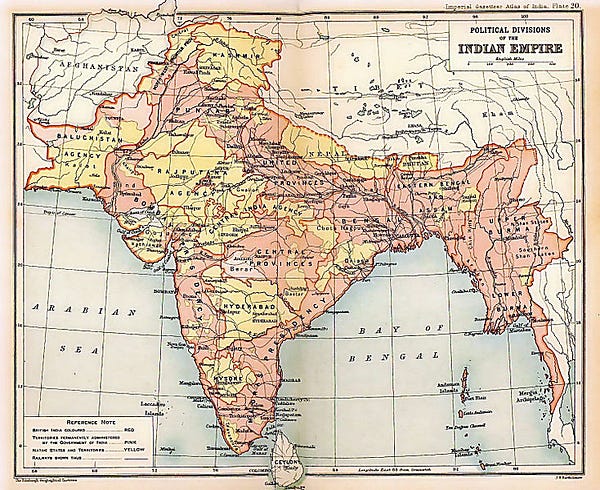
Colonial rulers have repeatedly seen the fallout of not understanding the mechanics of the beliefs of their colonized subjects (as with the use of pig- based lard in ammunition given to Muslim British subjects). Even as colonial subjects are exploited and mistreated, until some kind of cultural assimilation is complete, there are certain lines that cannot be crossed without revolt, and those lines are invisible without cultural understanding.
As anarchists, our solution probably should not be to impose our own worldview upon less-powerful subjects.
Our solution ought to be grounded in adopting meta-epistemic norms — norms about how we come to accept or believe things — and encouraging others to adopt them
One concern (learned by the propaganda outfits) is that ideas are not more effective, valuable, or popular just because they are true.
[We should not be confident that the truth will win in a marketplace of ideas](https://medium.com/the-weird-politics-review/is-the-marketplace-of- ideas-actually-a-useful-metaphor-79b05c8eaef3).
Photo by Joshua Earle on Unsplash
As in any marketplace where some players can be much louder than others, advertising, PR, canny market segmentation, and luck will almost always overwhelm quality when it comes to profit — the loudest barker can shout down dissent in order to get his products sold, then run away before anyone notices the defects or asks for a refund — and [as in any marketplace where profits can be invested in future work with sufficiently high returns](https://medium.com/the-weird-politics-review/the-red-queens-wall- economic-inequality-through-the-looking-class-9121fad06533), initial profit drives future profit more than any other factor.
For this reason alone, we should not allow our own confidence in the truth of our ideas to skew our predictions about how they will go over with someone else!
Instead, an accurate understanding of an alien worldview is tactically and strategically necessary.
Even if someone’s model of the world is both horrifying and completely wrong, understanding its internal logic will give you an advantage in defeating it.
Another concern is context.
When information is made universally public but is intended for a particular knowledge-community, it can trivially be misrepresented by an outgroup member.
Eliminating important context poisons our own ability to accurately understand the world, & should be treated as rude and irresponsible: at best, it forces someone else to dig up context and check to see if the result still holds up; at worst, it produces a self-reinforcing bias (with unjustified confidence) that ultimately dooms our project.
Not looking hard enough for context (or for alternative explanations) is equally bad.
These two rules should provide an advantage to any group that adopts them in a landscape of warring mythologies, so groups are incentivized (through self-interest) to adopt them, and this incentive does not decrease with more widespread adoption: defectors are always at a disadvantage. At the same time, adoption ‘civilizes’ the whole landscape: with these rules, inter-group competition is less frustratingly hostile and intractable, and diplomacy is more often an option.
By John Ohno on February 12, 2020.
[Canonical link](https://medium.com/@enkiv2/the-politics-of-epistemic- fragmentation-175d6bbb98a4)
Exported from Medium on September 18, 2020.

Rendering context...

